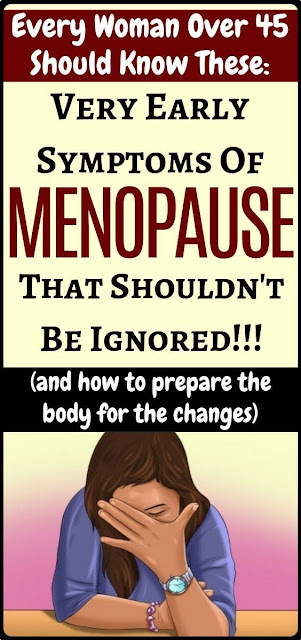Hot waves, weight gain, insomnia, nervousness, unexplained mood swings, sexual problems, urinary incontinence, absence of menstruation … menopause is a turning point in every woman’s life.
It is particularly helpful for women to be informed of what exactly they are expecting in the menopause, as well as about the different options available to them in case they need help for easier symptom delivery and eventual consequences.
What is menopause?
Menopause, also known as second puberty, marks the end of menstruation, and thus the possibility for a woman to give birth and extend the family. Menopause is defined as a state of absence of menstruation over 12 consecutive months.
The end of the reproductive period is the result of the decreased secretion of female hormones (estrogen and progesterone) from the ovaries. The transition from fertile to infertile conditions in women occurs gradually over several years and is a consequence of biological aging. In the end, the ovaries no longer produce eggs and the woman cannot get pregnant.
When does menopause start?
The onset of menopause is strictly individual. It usually occurs between
the ages of 45 and 55, but there are also women entering the menopause
in the 30s or 60s of life. It is considered that the average age at
which women enter menopause is 51 years.
No one can predict when exactly a woman will enter the menopause. But it is generally accepted that menopause in women occurs at approximately the same age as their mothers.
In some women, it may occur earlier as a consequence of surgical removal of the ovaries or chemotherapy. Menopause that occurs 40 years ago, regardless of cause, is called premature menopause.
Smoking has an important impact on menopause. Smokers enter menopause a few years earlier than non-smokers.
Characteristic symptoms of menopause
It is accepted that the word menopause does not apply only on a
particular day, but on the entire transitional period around the
menopause, called perimenopause.
In the months or years leading to menopause, women experience a variety of symptoms, among which the most common are:
- Uncommon menstruation;
- Hot waves;
- Night sweats;
- Urinary stress incontinence;
- Headaches;
- Vaginal dryness;
- Low libido;
- Dry skin;
- Mood swings;
- Amusing metabolism;
- Increase in weight;
- Sleep problems (insomnia);
- Lack of energy;
- Depression;
- Anxiety;
- Joint pain.
8 tips which help during menopause
Certain changes in lifestyle can help relieve symptoms. Here are some tips on how to spend this period of your life easier:
- Avoid coffee, alcohol and spicy foods.
- Eat soybeans. Soy contains estrogen.
- Regardless of whether you are taking calcium and vitamin D via diet or tablets, they will help reduce the risk of osteoporosis. The recommended daily intake of calcium for women over 51 years is about 1,200mg, and of vitamin D around 600IU.
- Go to 2.5 hours of moderate physical activity per week. It will help you to preserve the health of your bones and heart, to reduce the level of stress and to improve your mood.
- Increase the consumption of omega-3 and omega-6 fatty acids. Taking these fatty acids helps with dry skin, joint pain and dry vagina. Omega-3 and omega-6 fatty acids are most common in fish, pumpkin seeds, walnuts, flaxseed, dark green vegetables.
- Use lubricants. Dryness of the vagina, caused by decreased estrogen, can lead to unpleasant sexual intercourse. This problem is easily solved using lubricants.
- Do Kegel exercises every day. They are the best way to strengthen the muscles of the vagina and pelvis and are especially useful in the event of stress-incontinence (sneezing, coughing and heavy laughter).
- Breathe slowly but deeply, whenever you feel the hot waves. Inhale six to eight times per minute. It will help you to relieve stress and relax. To avoid night sweats, use cotton sheets and pajamas.
